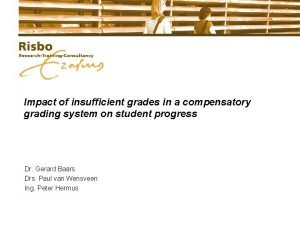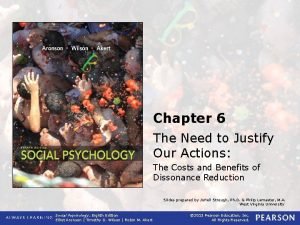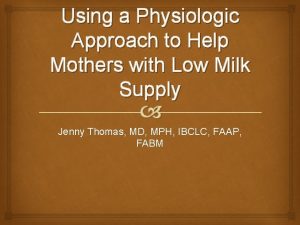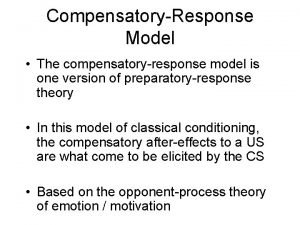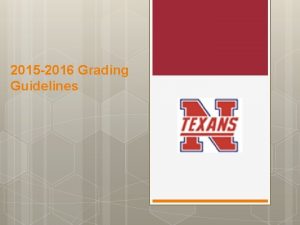Impact of insufficient grades in a compensatory grading






- Slides: 6

Impact of insufficient grades in a compensatory grading system on student progress Dr. Gerard Baars Drs. Paul van Wensveen Ing. Peter Hermus

Background • In the last couple of years, all schools of Erasmus University Rotterdam have implemented Nominal= Normal (N=N) • Aim: to improve student success in the first year in order to start the second year without any study delay • Four measures in the first year: • • • Introduction of 60 ECTS as the minimum credit requirement for the first year Limitation of the number of allowed re-examinations Introduction of some sort of compensation of insufficient grades Introduction of active learning Compensation: within certain limitations students can compensate for insufficient grades with higher grades on other courses

Research questions • To what extent did students of cohort 2012 use the compensation regulation in the first year? • Did the group of students who used the compensation regulation earn significantly fewer credits after two years of study than the group of students who did not make use of the compensation regulation?

Use of the compensation regulation in the first year

Effect of usage of compensation regulation on number of credits after two years

Conclusions • Use of compensation: – • Number of credits after 2 years: – • In almost all programs >50% students has not compensated for insufficient grades in the first year. A very small percentage of students has compensated for more than two insufficient grades. For some of the programs, there is little to no difference in the number of credits obtained after two years of study among the compensation groups. In a number of other programs, there is a difference between the compensation groups. Students who did not make use of the compensation regulation earned more credits after two years than students who used the regulation. Evidence-based recommendation: limit the number of compensations in the first year to a maximum of 2. • Group with 3 or more grades compensated is small • This latter groups shows the weakest study progress after two years
